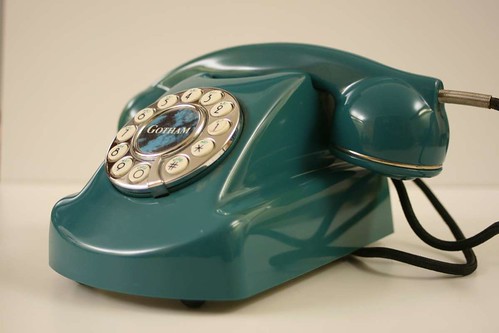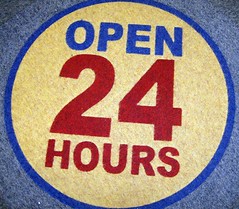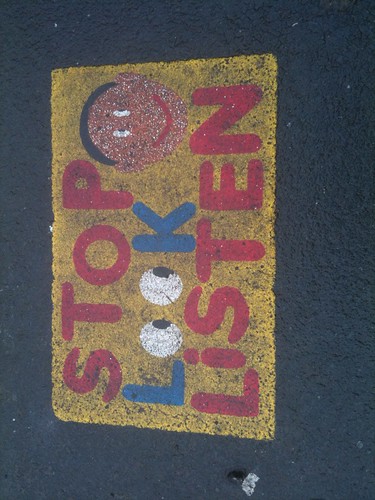This past week I have spent hours erasing data from old computers that are laying around my house. At first I just thought, well, I can just go into the documents/settings files and delete things out and I would be good. But, after a conversation with my brother-in-law I realized that there is much more concern. From our discussions I learned rather quickly that when you get ready to dispose of an old hard drive, simply deleting the content is not really erasing it.
 He also shared with me that when you take a computer to an electronics store and they say the hard drive is fried that I should be asking for it back to take with me. You never know where that piece of equipment might end up and you could be in serious trouble if it ends up in the wrong hands. Think about it, how many times have we punched our credit card number into a website to purchase a product, filled out a form with our social security number, saved private personal information onto a computer? I know that nowadays I pay all my bills online. I hate wasting paper, buying stamps and even just the walk to the mailbox. Instead, I enjoy being able to sit down at my computer and within 15 minutes pay all my bills for a month. But each time I make that payment, something is being stored onto my hard drive.
He also shared with me that when you take a computer to an electronics store and they say the hard drive is fried that I should be asking for it back to take with me. You never know where that piece of equipment might end up and you could be in serious trouble if it ends up in the wrong hands. Think about it, how many times have we punched our credit card number into a website to purchase a product, filled out a form with our social security number, saved private personal information onto a computer? I know that nowadays I pay all my bills online. I hate wasting paper, buying stamps and even just the walk to the mailbox. Instead, I enjoy being able to sit down at my computer and within 15 minutes pay all my bills for a month. But each time I make that payment, something is being stored onto my hard drive.
When your machine is now obsolete and longer being used, what do you do to dispose of them? Do you simply take them to the dump and throw them into a bin with the other few hundreds of computers? Do you recycle them? Either way, before taking them in, do you take the necessary steps to remove all your data to protect yourself against identity theft?
Hackers are becoming more intelligent and learning better ways to hack into old computers. They say that until a hard drive is written over multiple times the data can actually be recovered. This is how organizations like the CIA & FBI are able to get data from a computer that seems to have been cleared and solve cases.
How to Protect Yourself
There are several different programs that are around for clearing your hard drive once you are finished with a computer. The first way is to use a giant electromagnet and wipe it clean. There are companies that will do this for you for a few dollars, or you can buy a machine to do it yourself for a few thousand dollars. The second option would be to remove the hard drive and physically destroy it with a sledgehammer, drill, saw, etc. While this option seems like it could be more fun, it is a little bit more dangerous. The third option is to use some simple software to destroy any info on the hard drive.
The program though that I have have found for erasing old PC’s is Darik’s Boot and Nuke. This program will re-write over a hard drive 7 times which leaves things almost impossible for a hacker to find your old data. This way, when you take your computer to the local computer shop for recycling, you do not need to worry about your personal identity and data falling into the wrong hands.
What about other items with Hard Drives? Did you know that machines like a basic copier machine have a hard drive in them? How easy is it for your information to fall into other hands on this type of machine? Well, from the video below, it looks like only about $300 and a free program from the internet. After that they can have any and all information that was ever stored on the hard drive of this machine.
So before you dispose of your next computer or old copier machine, make sure to take a little bit of time and erase your identity before throwing it away in the dumpster.




 Whatever means of communication you prefer, the same principles hold true. When a consumer contacts you, they expect responses. And they expect them to come quickly. If it is taking more than 24 hours to respond you run a very high risk of losing them. If this is the case, then you need to either hire an assistant to deal with your incoming messages from consumers.
Whatever means of communication you prefer, the same principles hold true. When a consumer contacts you, they expect responses. And they expect them to come quickly. If it is taking more than 24 hours to respond you run a very high risk of losing them. If this is the case, then you need to either hire an assistant to deal with your incoming messages from consumers.
 Monitoring your business online? Yes, you need to know what consumers are saying about you, your company, products, & services. You can really impress your customers when you are paying attention to what they are saying and responding appropriately.
Monitoring your business online? Yes, you need to know what consumers are saying about you, your company, products, & services. You can really impress your customers when you are paying attention to what they are saying and responding appropriately.


 Usually within 10 minutes of a conversation with a new prospective client I can tell if they have one of these types of sites. Why because they have only 5 pages of content, on a standard layout with zero ability of customization, and the adding of plugins or a blog is impossible! When I ask them why they chose this as their website company, the response every time has been this: “Well, I didn’t have a bunch of money to go buy a fancy site and didn’t want to put that much money into something. Once this site makes me some money I will upgrade. Besides my new site looks pretty and will be fine for my online marketing strategy.”
Usually within 10 minutes of a conversation with a new prospective client I can tell if they have one of these types of sites. Why because they have only 5 pages of content, on a standard layout with zero ability of customization, and the adding of plugins or a blog is impossible! When I ask them why they chose this as their website company, the response every time has been this: “Well, I didn’t have a bunch of money to go buy a fancy site and didn’t want to put that much money into something. Once this site makes me some money I will upgrade. Besides my new site looks pretty and will be fine for my online marketing strategy.”  These are just four of the many reasons why I said she needed to change her site before even really starting. Luckily, she listened to me & took my advice. We worked together with a web developer and built her an
These are just four of the many reasons why I said she needed to change her site before even really starting. Luckily, she listened to me & took my advice. We worked together with a web developer and built her an